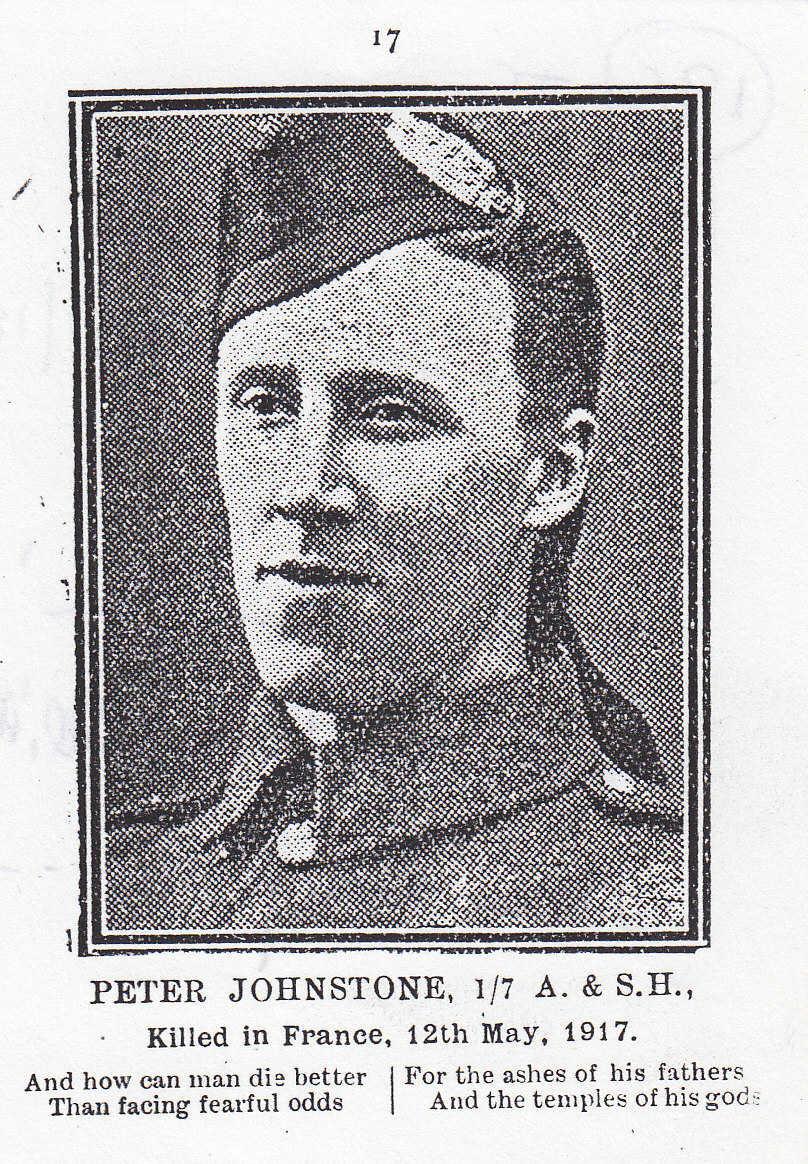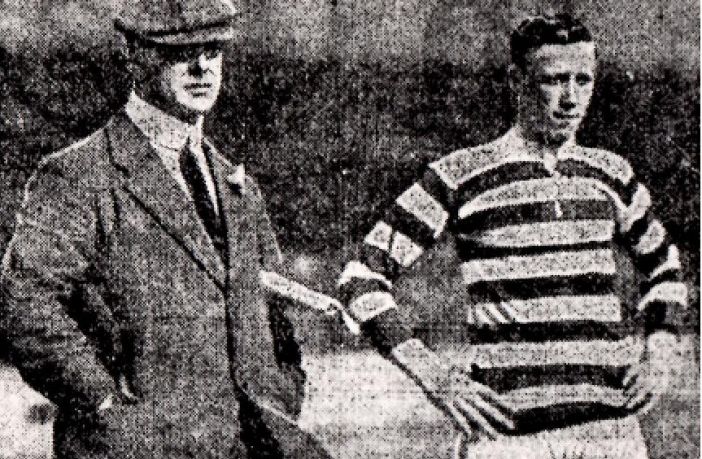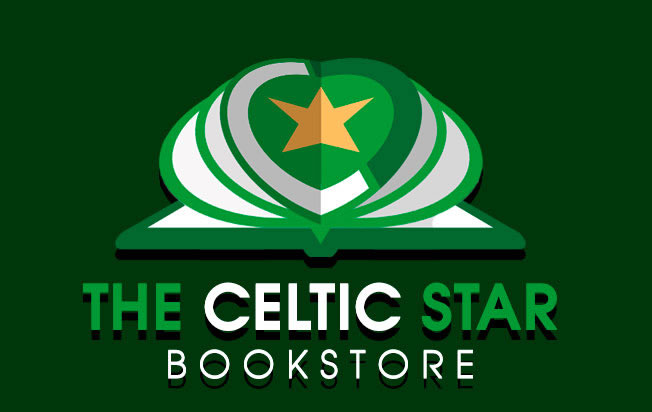Today, 11 November, gives us an opportunity to remember Celtic’s war heroes, players and supporters alike.
One of the Celts to lose his life in the so-called Great War was Peter Johnstone. Coal miner Peter Johnstone signed for the Bhoys in January 1908 from Glengraig Celtic and for the best part of the next decade the Fifer was to be an invaluable asset to the Celtic before the horrors of war claimed his young life.
He arrived from Fife and was a miner in Glencraig prior to joining Celtic. Tall and fair-haired, Johnstone was a pre-war Celtic favourite who played 223 times and was one of the players who helped Celtic on the road to win 6 league titles in a row under manager Willie Maley.

Blessed with the talent and intelligence to adapt to almost any position Johnstone turned out at inside-left, left-half and centre-half. It was in the latter position that Peter truly excelled, although as a left-half he was more than capable of contributing with regular goals. He was also a great supplier of goals for fellow minder Jimmy Quinn.
“Celtic fans idolise Peter Johnstone…a lion’s courage… has played in almost every position…never let the side down,” was one quote about this distinguished Celt.
He won a Glasgow Cup medal and Scottish Cup medal in his first season, and helped Celtic win the Scottish Cup in 1912 in a 2-0 win over Clyde at Ibrox.
He was converted from the front line to the centre-half role, following in the footsteps of Willie Loney and provided the Bhoys was sterling and solid service at the very heart of a robust and resilient Celtic defence.
Taking over this centre-half position for season 1913/14, the club won its third league/cup double. Johnstone adapted to this role with relish, and in the defensive unit of Young/Johnstone/McMaster they give little away. Only 14 league goals were lost all season. Johnstone actuallly humoured about the change to centre-half saying: “The softest job I’ve had all season”.
Johnstone was part of the infamous side who contested for the ‘missing’ Ferencvaros Cup in Budapest against Burnley in 1914. The game ended in a draw and it was reluctantly agreed that a return would be played in Burnley. Celtic won and the trophy never materialised. Apparently he had a sharp temper, and had to be restrained from taking on Burnley’s yappy Ulsterman Jimmy Lindley.
As a measure of his value, he was awarded a cap for the Scottish League select in a 2-1 win over the Irish League select played in Belfast on 18 November 1914, played with three other Celts and three Hearts players.
The war years put a halt to ambitions, but he still played for Celtic (although apparently a little more filled out). Continued being a courageous performer he helped the title winning Hoops of 1915 and 1916, while combining his role as a footballer with that of a miner doing his shift (he had to return to the mines for the war effort).
On 11 March 1916 Peter signed up to join the troops on the frontline and in May that year was called up by the 14th Battalion of the Argyll and Sutherland Highlanders.

Football was in the blood, and he travelled overnight by train from the South of England to play for Celtic to knock out Rangers from the Glasgow Cup in September 1916. He would play his last game for Celtic on 7 October 1916 earning himself another winners medal as Celtic defeated Clyde 3-2 in the Glasgow Cup Final.
He later transferred to the 6th Battalion to get to the front line faster in France, but just seven months later – on around 12-16 May 1917 – Private 285250 Peter Johnstone would be killed in action.
Peter had been transferred to the Seaforth Highlanders who happened to be at the Front. He was one of thousands of young men to fall at the Battle of Arras, in northern France. His body was laid in an unmarked grave, and ex-Celt Joe Cassidy looked for his grave. Peter left behind a wife and two children who were joined in their grief by thousands of Celtic fans.
Peter is an all-time Celtic great, and his loss will have been keenly felt across Scotland.
So today remember Celtic legend Peter Johnstone, and every other Celtic causality – players and supporters – of the two World Wars.
Writing for The Celtic Star Historian David Potter had this to say…
Remembrance Day has been hi-jacked by the victors since 1919, and turned into a flag waving piece of triumphalism with politicians and royalty jumping on band waggons etc. and using words like “serve” “duty” and “patriotic”.
But surely Remembrance should be a commemoration of ALL who died in the obscene folly of a war, brought about when the decadent ruling classes of Europe, each one as despicable as the other, failed to solve a small and localised conflict.
Remembrance Day does not belong to the British Army or the British Empire. They have indeed done things that would shame all the demons of Hell in their time – and not only in Ireland – but Remembance Day must not belong exclusively to them.

It belongs to, among others, our own Peter Johnstone of Glencraig who won three Scottish Cup medals, and four Scottish League medals with Celtic and who disappeared in 1917 and was never found.
Donnie “Slasher” McLeod also failed to return, as did countless less well known Celtic players, and men like Andy McAtee, Willie McStay and Joe Cassidy all served.
Supporters too – the man who wrote to his son that when the war was over, he would take him to see Patsy Gallacher, or the man who entertained everyone in Tripoli by telling them all about Patsy Gallacher, Jimmy McGrory and Jimmy Delaney, and who, two days after being returned to his mother and father, got on another train to visit Celtic Park!
I would also argue most strongly that Padraig Pearse, James Connolly and Joseph Mary Plunkett are war casualties. Do take time to remember them, shaking our heads at the folly and waste of it all. Remembrance Day, I repeat, is NOT the exclusive possession of the British Army or the British Empire!
David Potter




